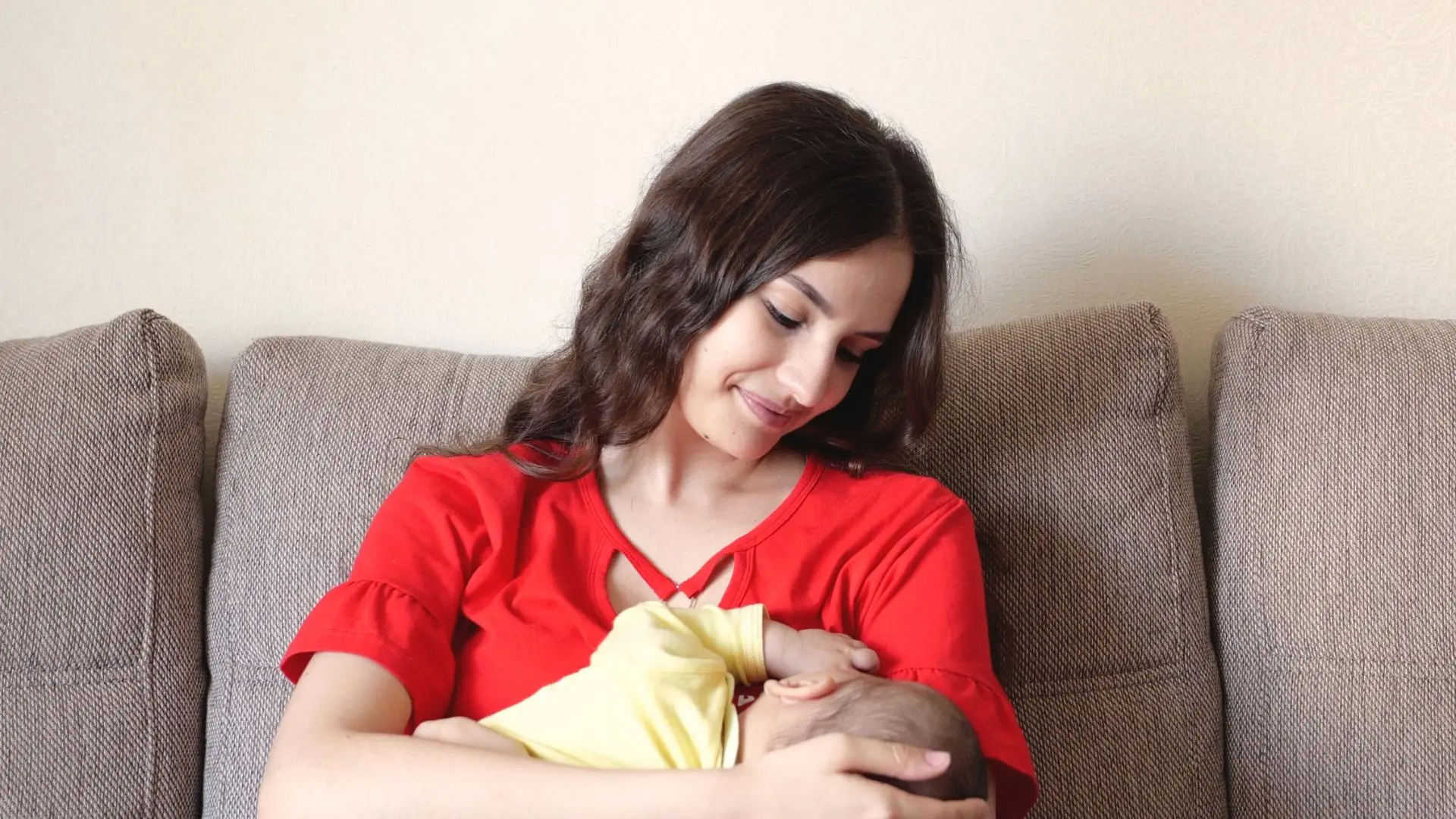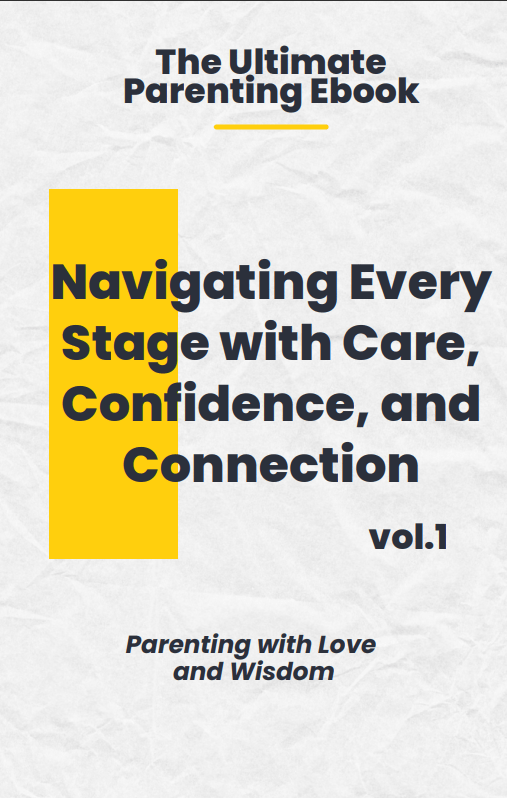Find expert advice on parenting a child with ODD. Our blog covers essential signs, causes, and actionable strategies to help you manage oppositional behavior.

Parenting a child with ODD (Oppositional Defiant Disorder) is undeniably challenging, but it is not an impossible task. As a parent, you might find yourself constantly caught in power struggles, questioning your methods, or even feeling defeated at times. You are not alone, and more importantly, there are ways to manage and guide a child with ODD effectively.
In this blog, we’ll understand ODD, its causes, and signs, while also offering you evidence-based, actionable strategies that can help. The key is in combining knowledge with the right parenting techniques to create a nurturing environment where both you and your child can thrive.
In This Blog
ToggleWhat is Oppositional Defiant Disorder (ODD)?
ODD is a behavioral disorder defined by a pattern of angry, irritable moods, argumentative or defiant behavior, and vindictiveness toward authority figures. It is more than occasional disobedience or temper tantrums; it is a persistent condition that significantly impacts daily functioning.
Parenting a child with ODD means dealing with behaviors that are deliberate and repetitive, such as arguing, refusing to follow rules, and blaming others for mistakes. According to the American Academy of Child & Adolescent Psychiatry, ODD affects approximately 3.3% of children globally. While boys are more frequently diagnosed before puberty, the condition tends to balance out in adolescence, with boys and girls affected equally.
Signs and Symptoms of ODD
Recognizing the symptoms is essential in parenting a child with ODD. Children with this disorder show a consistent pattern of oppositional behavior for at least six months. Key indicators include:

Frequent temper tantrums: Explosive reactions that may seem disproportionate to the situation.
Constant arguing with adults: Often challenges rules and directions.
Refusal to comply with requests or rules: This defiance is deliberate and ongoing.
Deliberate annoyance of others: Intentionally provoking people around them.
Blaming others for their mistakes: Refusing to take responsibility for actions.
Easily annoyed and irritated: Overly sensitive to perceived slights or frustrations.
Spiteful or vindictive behavior: Exhibiting vindictiveness at least twice within six months.
In severe cases, these behaviors may interfere with a child’s schooling, social life, and relationships at home, which is why timely intervention is critical.
Causes of ODD
Understanding the root causes of ODD is the first step toward effectively parenting a child with ODD. Although the exact cause isn’t fully known, a combination of genetic, biological, and environmental factors contributes to the development of this disorder.
Biological Factors
Some children are genetically predisposed to develop ODD, especially if there is a family history of mental health issues. Neurobiological factors, such as abnormalities in brain function, particularly in areas that control impulse and emotional regulation, have been linked to ODD.
A study by the National Institutes of Health (2019) showed that children with ODD often have differences in brain chemistry that affect decision-making and emotional control.
Environmental Factors
Inconsistent discipline, overly harsh punishment, and lack of supervision are significant contributors. Children exposed to marital conflict, family dysfunction, or parental mental health problems are at higher risk.
Psychological Factors
Many children with ODD have difficulty processing and managing their emotions. They often feel misunderstood, rejected, or underappreciated, which leads to aggressive and defiant behaviors.
These children struggle with frustration tolerance and may have a skewed perception of authority figures, interpreting neutral actions as hostile.
Children with insecure attachment are more likely to develop ODD because they struggle to regulate their emotions. When their emotional needs are unmet, they express defiance and opposition as a way to assert control over situations they feel powerless.
Actionable Strategies for Parenting a Child with ODD
Now that we understand ODD, let’s shift our focus to solutions. Parenting a child with ODD requires a specialized approach to discipline and behavior management. These strategies are based on research and experience, offering a clear path forward.

1. Stay Calm and Composed
One of the most important things you can do when parenting a child with ODD is to remain calm. Children with ODD tend to escalate their behavior in response to parental frustration or anger.
Research by Dunsmore et al. (2013) suggests that parental emotional regulation is directly linked to a child’s ability to regulate their own emotions. When parents model calm and composed behavior, it helps the child learn to manage their own reactions.
2. Use Positive Reinforcement
Using positive reinforcement is crucial when parenting a child with ODD. Implement a reward system to encourage good behavior. Whether it’s a behavior chart, tokens, or verbal praise, reinforcing positive actions helps shift the focus away from punishment. Studies have shown that rewarding effort (not just success) increases intrinsic motivation and helps build self-esteem.
3. Set Clear and Consistent Boundaries
Consistency is key in managing defiance. Children with ODD need predictable environments with clear rules and consequences. When boundaries shift or are unclear, it breeds confusion and defiance. Be specific about rules, and always follow through with both rewards and consequences.
4. Pick Your Battles
Not every instance of defiance warrants a confrontation. Choose to address the behaviors that truly matter, such as respect, safety, and cooperation. This reduces power struggles over minor issues and teaches your child that not all behaviors need immediate correction.
5. Allow Experiencing Natural Consequences
Let your child face the natural outcomes of their decisions. For example, if they refuse to wear a coat on a cold day, they will feel cold. This teaches accountability without direct punishment.
6. Calm Time-Outs
Rather than using time-outs as a punishment, use them as a cooling-off period. A brief break allows both you and your child to regain composure. Afterward, reconnect with your child to avoid feelings of rejection.
7. Avoid Harsh Discipline
Excessive punishment often backfires with children who have ODD. Studies by Burke et al. (2002) show that punitive parenting increases defiance rather than reducing it. Instead of focusing on punishment, shift toward a constructive discipline that emphasizes learning and growth.
8. Don’t Overlook Emotional Needs
Children with ODD often have emotional needs that go unmet. It’s important to validate their feelings and improve communication rather than escalating confrontations. Defiance is often a signal that your child feels unheard or misunderstood.
9. Try Authoritative Parenting Style
This style combines structure with warmth, setting clear expectations while remaining empathetic. Research by Baumrind (1966) shows that authoritative parenting leads to better emotional regulation and fewer behavioral problems. Parents who balance discipline with understanding create a more cooperative environment for their children.
10. Consider Parent-Child Interaction Therapy (PCIT)
PCIT is an evidence-based therapy that teaches parents how to interact with their children in a way that reduces defiance and improves communication. By focusing on positive reinforcement and relationship-building, PCIT has proven effective in reducing ODD symptoms.
When to Seek Professional Help
While many strategies can be implemented at home, there are times when professional help becomes necessary. Knowing when to reach out for additional support can be crucial for both you and your child.
Signs It’s Time to Get Help
If your child’s behavior is consistently worsening, and it starts impacting their ability to function in school, at home, or in social situations, it may be time to seek professional intervention. Signs such as severe aggression, extreme defiance, or behaviors that put themselves or others at risk should never be ignored.
Therapeutic Options
- Cognitive Behavioral Therapy (CBT): CBT is one of the most effective therapeutic approaches for treating ODD. It helps children recognize and change distorted thinking patterns that lead to defiance and oppositional behavior. Therapy also focuses on improving problem-solving skills and emotional regulation.
- Family Therapy: Often, family dynamics play a key role in parenting a child with ODD. Family therapy enhances communication, minimizes conflict, and fosters stronger relationships. It gives every family member tools to interact more positively and supportively.
Medication
In some cases, medication may be recommended, especially if your child has co-occurring disorders like ADHD or anxiety. Medication can help manage symptoms that interfere with a child’s ability to focus or control their emotions. It’s important to work closely with a healthcare provider to determine if this is the right option for your child.
Conclusion
Parenting a child with ODD can be incredibly challenging, but it is far from impossible. Understanding the disorder, recognizing the signs, and implementing consistent, compassionate parenting strategies can make a significant difference in your child’s behavior and overall well-being. The key is to remain patient, consistent, and empathetic.
Parenting a child with ODD isn’t about eliminating the behavior overnight; it’s about creating a structured, nurturing environment where your child can learn to regulate their emotions, understand boundaries, and develop healthier ways of interacting with the world around them. Along the way, don’t forget to care for yourself. You deserve support, patience, and understanding, just like your child.
If you’re currently facing the challenges of parenting a child with ODD, we invite you to join the conversation. Share your personal experiences, ask questions, or offer helpful tips to other parents in the comments below.
Changes are possible. Keep learning, adapting, and most importantly, believe in the progress you and your child can achieve together.
FAQs
1. What is Oppositional Defiant Disorder (ODD)?
Oppositional Defiant Disorder (ODD) is a behavioral disorder in children characterized by persistent defiance, argumentative behavior, and hostility toward authority figures.
2. What are the common signs of ODD in children?
Common signs of ODD include frequent temper tantrums, constant arguing with adults, refusal to comply with rules, and blaming others for mistakes.
3. What causes ODD in children?
ODD can result from a combination of genetic, biological, environmental, and psychological factors, such as family conflict, inconsistent discipline, and emotional regulation issues.
4. How can I effectively manage a child with ODD at home?
To manage a child with ODD, stay calm and consistent, use positive reinforcement, set clear boundaries, and choose your battles wisely to reduce power struggles.
5. What role does consistency play in managing ODD?
Consistency is crucial when parenting a child with ODD. Clear rules and consistent consequences help create a structured environment that reduces confusion and defiance.
6. Are there specific discipline strategies that work for children with ODD?
Effective discipline strategies for children with ODD include using natural consequences, providing calm time-outs, and employing behavioral contracts to reinforce positive behavior.
7. How can positive reinforcement help with ODD?
Positive reinforcement encourages desirable behavior by rewarding efforts and achievements. This approach helps shift focus from negative behaviors to positive actions, promoting better compliance.
8. What should I avoid when parenting a child with ODD?
Avoid harsh discipline, inconsistency, and overlooking emotional needs. Excessive punishment and unpredictable rules can exacerbate ODD symptoms and create more defiant behavior.
9. How can I support my child’s emotional needs while managing ODD?
Validate your child’s feelings and improve communication. Address their emotional distress by listening actively and providing support, which can help reduce defiant behavior.
10. When is it time to seek professional help for a child with ODD?
Seek professional help if the child’s behavior worsens, disrupts daily life, or if there are signs of co-occurring mental health issues like anxiety or depression.
11. What are some effective therapies for children with ODD?
Cognitive Behavioral Therapy (CBT) and Parent-Child Interaction Therapy (PCIT) are effective for treating ODD, as they address negative thought patterns and improve family interactions.
12. How can family therapy benefit a child with ODD?
Family therapy helps improve communication and resolve conflicts within the family. It supports a unified approach to managing ODD and strengthens family relationships.
13. What is the impact of parental stress on managing ODD?
Parental stress can affect how you manage ODD. Engaging in self-care and seeking support can help you maintain patience and consistency in your parenting approach.
14. How does authoritative parenting help with ODD?
Authoritative parenting, which combines warmth with structure, helps manage ODD by setting clear expectations and providing support, leading to better behavior and emotional regulation.
15. What self-care practices are important for parents of children with ODD?
Parents should engage in regular self-care practices, such as exercise, therapy, and joining support groups, to manage stress and prevent burnout while effectively parenting a child with ODD.




